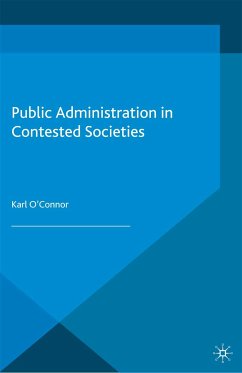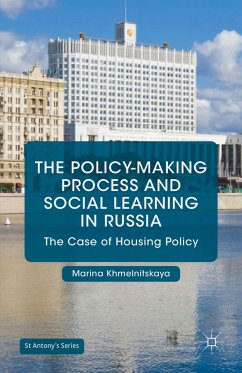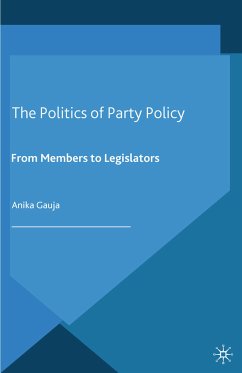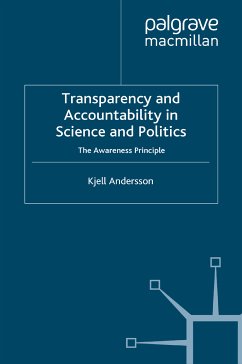Dieser Download kann aus rechtlichen Gründen nur mit Rechnungsadresse in A, B, BG, CY, CZ, D, DK, EW, E, FIN, F, GR, HR, H, IRL, I, LT, L, LR, M, NL, PL, P, R, S, SLO, SK ausgeliefert werden.
Andrew Massey, Department of Politics, University of Exeter, UK.
"In this tempting approach to the role of bureaucracy in conflict management, Karl O'Connor illustrates the active role of the bureaucratic elite in the shadow of the political discourse. He opens a promising new research dimension in the analysis of contested societies and their complex pacification mechanisms."
Rudi Janssens, Department of History, Free University of Brussels, Belgium
"Taking Belfast and Brussels as examples of divided cities, the author explores the environment in which bureaucrats interact with elected politicians. His working assumption is that administrative capacity is not only necessary for attaining goals of good governance, but also for sustaining power-sharing agreements. O'Connor writes lucidly, engaging the reader's attention throughout, and making a valuable contribution to our understanding of how 'divided cities' meet daily challenges. The book will enlighten and absorb researchers and practitioners alike."
Edward Moxon-Browne, Professor (Emeritus) of European Integration at the University of Limerick, Ireland









